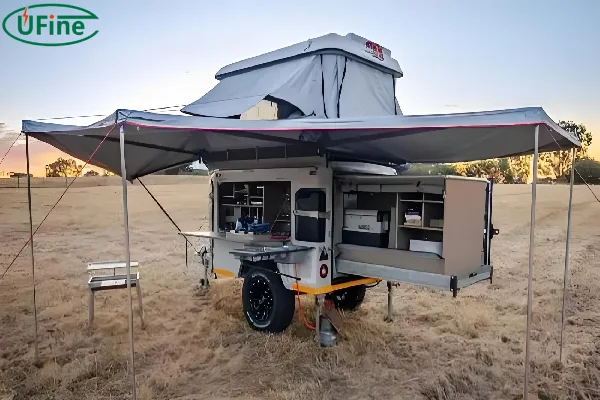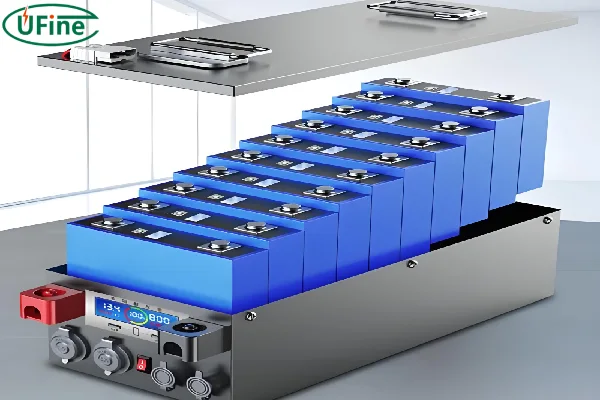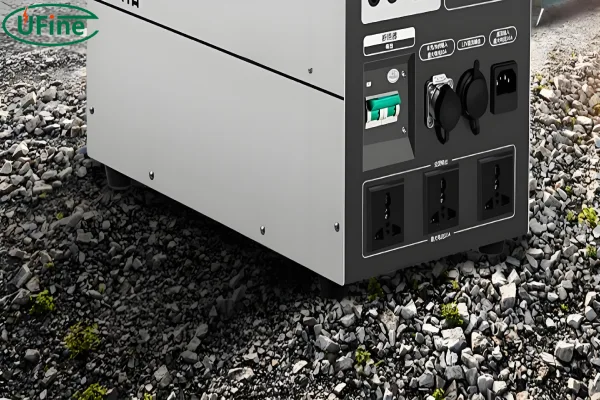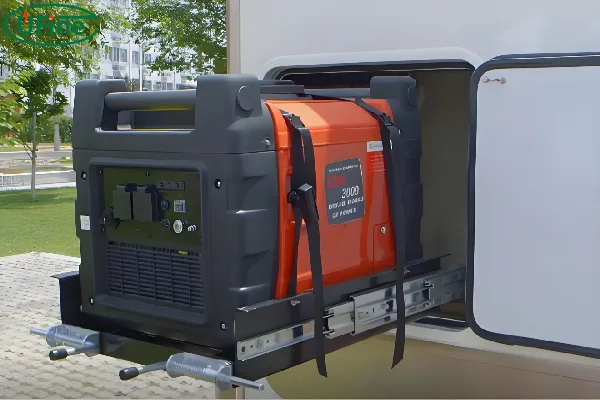Embarking on a camping adventure means having the right power source for your camper. A reliable battery ensures you can run your appliances, lights, and devices without a hitch. Deep cycle lithium batteries have become the go-to choice for camper enthusiasts. They offer unmatched efficiency and longevity. In this article, we’ll dive into everything you need to know about choosing the best deep cycle lithium battery for your camper.

Part 1. What does your camper battery need to meet?
A camper battery must meet several essential criteria to ensure it performs well in the unique environment of a camper. Here’s what to look for:
- Durability: A camper battery should withstand constant vibrations and bumps on the road. Campers often travel over rough terrain, and the battery needs to be robust enough to handle this. Look for batteries with a strong casing and build quality that resists physical shocks.
- Reliability: Your battery should provide consistent power, no matter the conditions. Whether you are camping in the heat of summer or the chill of winter, your battery needs to perform reliably. This means it should work well in a wide range of temperatures and not lose capacity rapidly over time.
- Capacity: The battery must have sufficient capacity to power all your devices and appliances for extended periods, especially if you enjoy off-grid camping. You’ll need to consider everything you plan to power—from lights and refrigerators to mobile devices and entertainment systems.
- Maintenance: Low maintenance is key. You don’t want to spend your trip worrying about battery upkeep. Lithium batteries are often preferred because they require minimal maintenance compared to lead-acid batteries, which need regular water level checks and equalizing charges.
- Fast Charging: Quick recharge times are crucial. When you’re on the go, you need a battery that can recharge swiftly. This is particularly important if you rely on solar panels or other intermittent power sources.
Part 2. Why do you need a deep cycle lithium battery for your camper?
Choosing a deep cycle lithium battery for your camper has several advantages:
- Longer Lifespan: Lithium batteries typically last much longer than traditional lead-acid batteries. This means fewer replacements over time, which saves money and reduces hassle. A well-maintained lithium battery can last up to 10 years or more.
- Lightweight: Lithium batteries are much lighter, which helps with fuel efficiency and ease of installation. Reducing weight can improve your camper’s handling and gas mileage, making your travels more economical and comfortable.
- Efficiency: They offer better energy efficiency, meaning more usable power from each charge. Lithium batteries can often discharge up to 80-90% of their capacity without damaging the battery, compared to 50% for lead-acid batteries.
- Fast Charging: Lithium batteries recharge faster, so you spend less time waiting and more time enjoying your trip. This is especially beneficial when using renewable energy sources like solar panels, as you can make the most of available sunlight.
- Eco-Friendly: Compared to lead-acid batteries, lithium batteries are more environmentally friendly. They have a lower environmental impact during both the manufacturing and disposal phases, and they also reduce the need for frequent replacements.
Part 3. How Does a Camper Deep Cycle Battery Work?
Deep cycle batteries are designed to provide a steady amount of power over a long period.
Here’s how they work:
- Energy Storage: They store energy in chemical form. For lithium batteries, this involves lithium iron phosphate cells, which are known for their safety and stability. These cells store electrical energy as chemical energy during charging.
- Power Delivery: When your devices need power, the battery converts stored chemical energy back into electrical energy. This process is efficient and provides a consistent power output. The battery discharges energy slowly and steadily, making it perfect for running appliances and devices over long periods.
- Recharge Cycle: Deep cycle batteries are designed to be discharged and recharged repeatedly. They can handle hundreds to thousands of charge cycles. Unlike starter batteries, which are designed for short bursts of energy, deep cycle batteries provide sustained power over time, which is ideal for campers.
Part 4. Camper deep cycle battery voltage
The voltage of a deep cycle battery is crucial for compatibility with your camper’s electrical system. Common voltages include:
- 12V Batteries: These are the standard for most campers. They are versatile and can power a wide range of appliances and devices. Most camper electrical systems are designed around 12V batteries, making them the easiest choice for most users.
- 24V Batteries: While less common in smaller campers, 24V systems are often used in larger RVs or for setups that require higher power. They are more efficient over long distances and can reduce the amount of current needed, which means smaller, lighter wiring and connectors.
Choosing the right voltage ensures your battery integrates seamlessly with your camper’s electrical system. It’s important to match the voltage of your battery to the voltage requirements of your camper’s appliances and systems to avoid compatibility issues.
Part 5. Camper deep cycle battery capacity
Battery capacity, measured in ampere-hours (Ah), indicates how much energy a battery can store. A higher capacity means the battery can power your devices for longer periods. For example, a 100Ah battery can provide 1 amp of current for 100 hours, or 10 amps for 10 hours. This is crucial for planning how long you can stay off-grid before needing to recharge.
Common Capacities:
- 100Ah: Suitable for light to moderate energy needs. Ideal for weekend trips or campers with minimal power requirements, such as lights, small fans, and charging devices.
- 200Ah: Ideal for longer trips or campers with more appliances. This capacity is great for those who need to run larger appliances like refrigerators, microwaves, and multiple electronic devices.
- 300Ah and Above Necessary for heavy energy users and extended off-grid stays. This is typically used in larger RVs or for those who have significant power needs, such as running air conditioners, multiple entertainment systems, and other high-draw appliances.
Part 6. Deep cycle lithium battery for camper size
Lithium batteries come in various sizes to fit different camper setups. Common sizes include:
- Group 24: Compact and suitable for smaller campers or tight spaces. These batteries are easy to handle and install, making them a good choice for those with limited space.
- Group 27: Slightly larger and offering more capacity, fitting most medium-sized campers. This size offers a balance between capacity and size, making it versatile for many users.
- Group 31: Larger and providing higher capacities, ideal for larger campers with greater energy demands. These batteries can handle substantial power loads and are perfect for those who need to run multiple high-draw appliances simultaneously.
When choosing a battery size, ensure you measure your battery compartment and compare it with the battery dimensions to ensure a proper fit. Some campers may have specific space constraints that dictate the maximum size of the battery that can be installed.
Part 7. How much should I pay for a deep cycle lithium battery for camper?
The price of deep cycle lithium batteries can vary based on several factors:
- Entry-Level Batteries ($500 – $1,000): These are suitable for light to moderate energy needs. They often have lower capacities and may not include advanced features, but are excellent for budget-conscious campers or those with minimal power needs.
- Mid-Range Batteries ($1,000 – $2,000): These batteries offer a good balance of capacity, features, and price. They are ideal for most campers who need reliable power for a range of appliances and devices.
- High-End Batteries ($2,000 and Above): These are designed for heavy users and extended off-grid stays. They typically offer higher capacities, faster charging times, and advanced features like integrated battery management systems (BMS).
Factors affecting the price include:
- Capacity: Higher capacity batteries cost more due to the increased amount of energy they can store.
- Brand: Well-known brands with a reputation for quality and reliability often charge a premium.
- Features: Additional features such as built-in BMS, Bluetooth monitoring, and enhanced safety mechanisms can increase the cost.
- Warranty: Longer and more comprehensive warranties generally add to the cost but provide better protection for your investment.
Part 8. How long do camper deep cycle batteries last?
Camper deep cycle batteries, specifically lithium-ion batteries, typically last between 5 to 10 years. However, their actual lifespan can vary based on several factors. Here are the key factors that affect the duration of lithium batteries for campers:
- Cycle Life: The number of charge and discharge cycles a battery can undergo before its capacity significantly diminishes. Lithium batteries often have a cycle life of 2,000 to 5,000 cycles.
- Depth of Discharge (DoD): Regularly discharging a battery to very low levels can shorten its lifespan. Maintaining a shallower depth of discharge generally helps the battery last longer.
- Temperature: Extreme temperatures, both hot and cold, can impact battery performance and longevity. Ideally, batteries should be kept in a moderate temperature range.
- Charging Practices: Proper charging practices, including avoiding overcharging and using the recommended charger, can help extend battery life.
- Usage Patterns: How often and how heavily the battery is used will affect its lifespan. Frequent heavy usage can wear out the battery faster.
- Maintenance: Keeping the battery clean, ensuring proper connections, and following manufacturer maintenance guidelines can help prolong its life.
Related Tags:
More Articles

How to Choose the Best Floor Scrubber Battery for Commercial Cleaning?
Selecting the ideal floor scrubber battery ensures a long runtime, rapid charging, and minimal maintenance for efficient commercial cleaning operations.
Battery for Blower vs Battery for Leaf Vacuum: Which One Should You Choose?
Battery for blower vs leaf vacuum—learn the key differences in power, fit, and runtime to choose the right battery for your outdoor tool needs.
How to Choose the Right Battery for Blower?
Choosing the right blower battery? Consider voltage, capacity, chemistry & usage. This guide helps match the best battery for peak performance.
How to Choose the Best Insulated Battery Box for Lithium Batteries?
Choosing the Best Insulated Battery Box for Lithium Batteries? Discover key factors such as size, material, and safety for optimal protection and performance.
7 Critical Elements on a Lithium Battery Shipping Label
What must be on a lithium battery shipping label? Learn 7 key elements to ensure safety, legal compliance, and correct handling across all transport modes.






